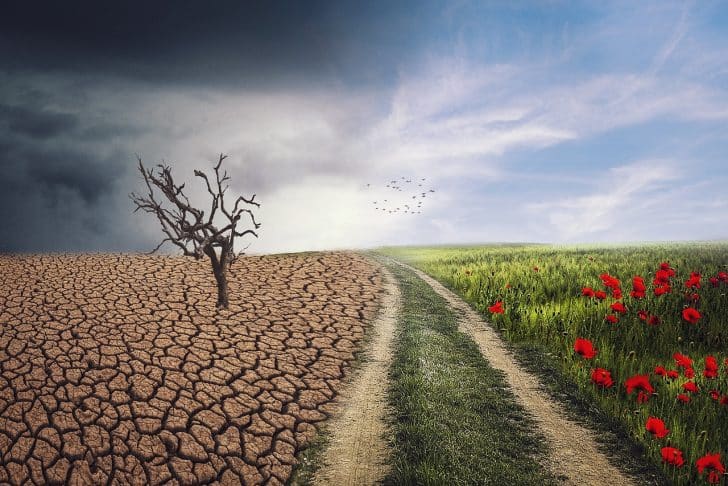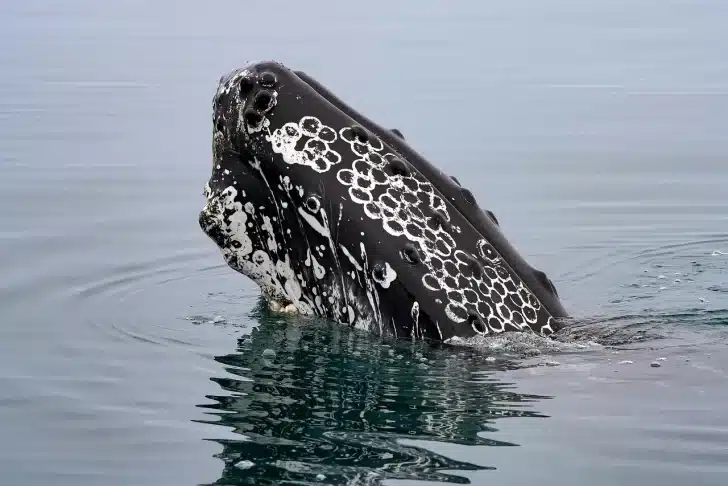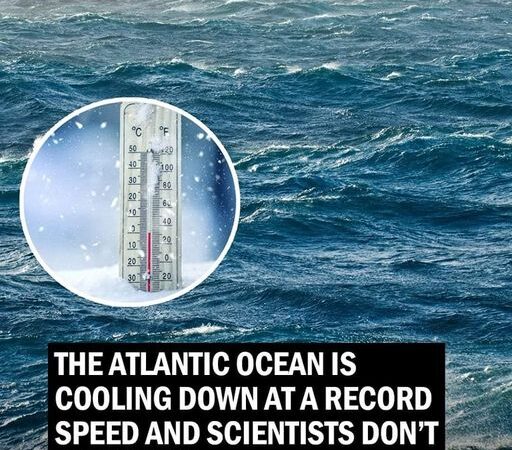The Atlantic Ocean is Cooling at an Unprecedented Rate, and Scientists Are Puzzled
While much about the ocean fascinates, some developments are raising concerns, particularly a recent shift in ocean temperatures.
The Atlantic Ocean is home to an abundance of life, with its deep, mysterious waters teeming with remarkable creatures. Despite this, only 5% of the world’s oceans have been explored, leaving over 90% uncharted and mysterious to scientists.
Changes in the Atlantic Ocean

As scientists continue to warn about climate change and rising global temperatures, the planet has seen increasingly hot and intense summers, with record highs in recent years. However, something unusual is happening in the Atlantic Ocean.
Cooling of the Atlantic Ocean

In recent months, scientists have observed that the Atlantic Ocean is cooling at an unprecedented rate, dropping 1 to 2 degrees lower than expected for this time of year. While this may seem like a minor shift, researchers are alarmed because the cause remains unclear. “We’ve gone through the list of possible mechanisms, and nothing checks the box so far,” says Frans Philip Tuchen, a postdoctoral researcher at the University of Miami.
NOAA Data on the Atlantic

The Atlantic Ocean had been experiencing record-high temperatures since March 2023, largely driven by a strong El Niño weather pattern. However, NOAA data indicates a cooling trend since May, possibly triggered by an early arrival of La Niña. This weather transition typically occurs around September, but its early onset this year has left scientists wondering if it is responsible for the cooling in the Atlantic and other bodies of water.
Impacts on Hurricane Season

These complex weather patterns are difficult to predict and affect a range of factors like trade winds, solar heating, and rainfall. Experts are also cautioning that these shifts in the Atlantic could affect rainfall and increase the potential for more intense hurricanes. NOAA’s Michael McPhaden described the situation as a “tug of war” between the Atlantic and Pacific, with one ocean trying to cool itself while the other heats up.
The Role of Carbon Dioxide

Human activity has played a significant role in climate change, contributing harmful chemicals and greenhouse gases like carbon dioxide to the atmosphere. However, natural climate cycles have also caused significant shifts over time, with Earth experiencing warm “interglacial” periods and cold “ice ages” roughly every 100,000 years. Research has shown that carbon dioxide was a key factor in these historic temperature changes.
Shifts in Climate

Around 11,000 years ago, scientists believe the Pacific Northwest was warm and dry while the Southwest was cool and wet, illustrating how climate shifts have long shaped the planet. Unfortunately, modern human activity—such as urbanization and deforestation—has exacerbated carbon dioxide levels, further influencing climate patterns.
The Plant Life of the Atlantic

While plankton and algae in the world’s oceans play a vital role in absorbing carbon dioxide, unpredictable temperature changes could have severe consequences for marine plant life. These shifts may also lead to harsher winters and more severe hurricane seasons.
Preparing for Weather Changes

With the possibility of extreme weather on the horizon, it’s essential to be prepared. Here are some steps to safeguard against weather-related emergencies:
– Stock up on non-perishable foods like canned goods, freeze-dried fruits, vegetables, and preserved meats.
– Keep emergency candles and flashlights with fresh batteries on hand.
– Secure windows and doors with duct tape and cardboard to protect against storms.
– Ensure all outdoor items are strapped down and waterproof.
– Check windows and doors for proper insulation.
– Keep bottled water and jugs in case of water supply disruptions.
– Consider investing in a generator if you live in an area prone to power outages.
– Make sure prescriptions and medications are up to date.
– Have a first aid kit, garbage bags, wipes, and hand sanitizer ready.
– Keep important documents in a secure location to prevent damage or loss.
– Stay informed about local and global weather patterns, as changes in the Atlantic Ocean can have far-reaching effects, including on global food production.
By staying vigilant and prepared, individuals can better manage the potential impacts of these unpredictable climate changes.








